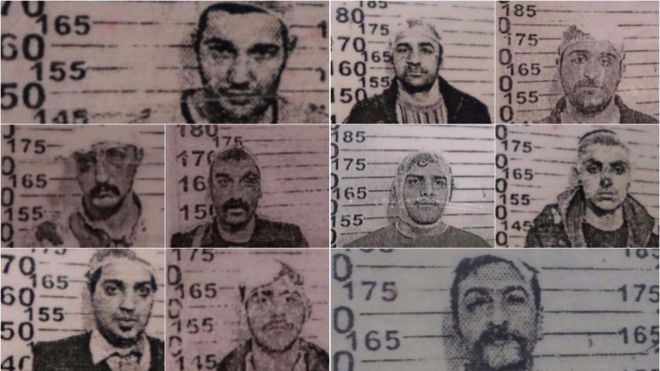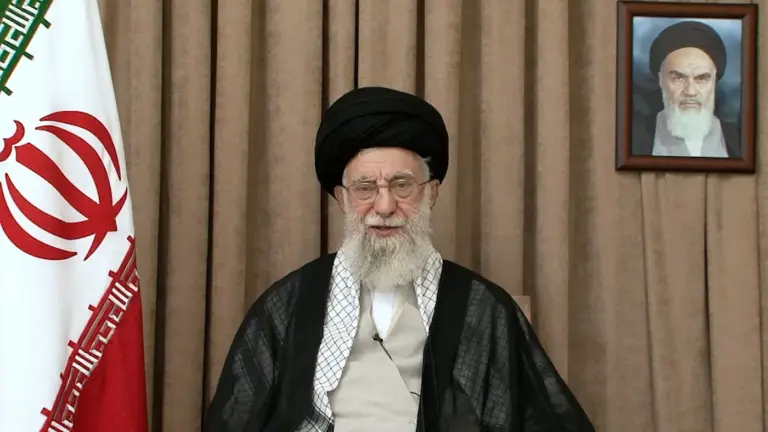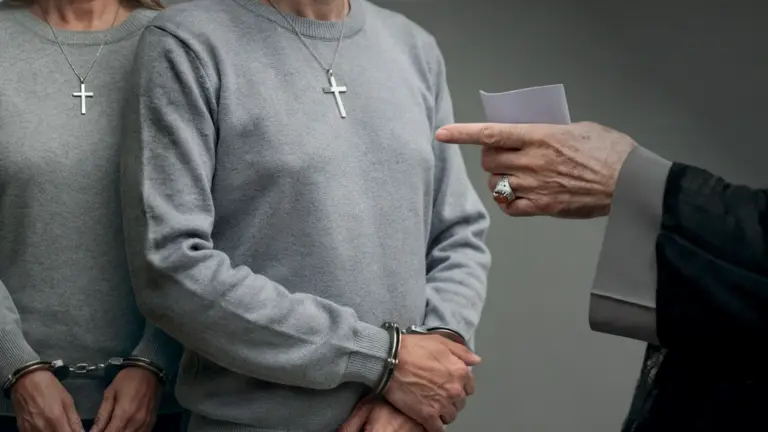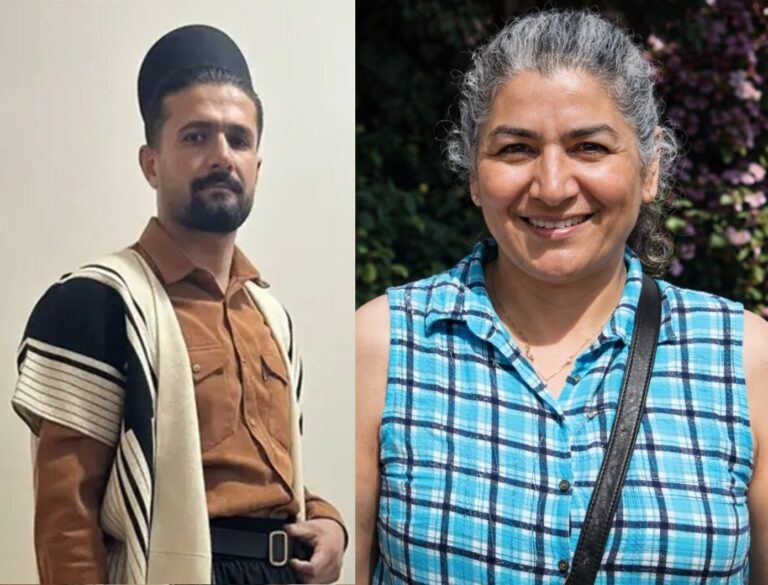
Photographs have emerged appearing to show 10 Gonabadi dervishes with bandaged heads and bruised faces posing for police mugshots.
The photographs, published by the BBC, are purported to show injuries sustained by the dervishes during their recent arrest and transfer to jail.
“We were surrounded by police officers and Basijis,” one of the dervishes is reported to have said. “The corridors were full of smoke; they’d used tear gas, so I held my breath and climbed to the roof. A number of us and our wives and children were there, but then the Basijis attacked. One of them said, ‘Throw them off the roof!’ They subjected us to the most vulgar insults. One after another they took us into the corridor of the building, where death seemed to await us. With iron bars, batons, knives and swords, they attacked us. On the stairs, I was drowning in blood. On the walls were the bloody handprints of dervishes. I lost consciousness. In the yard of the building they threw us down and I remember them standing over me and saying, ‘See if he is alive or dead.’ Then I was taken to the hospital.”
Gonabadi dervishes, Iran’s largest Sufi order, have long complained of mistreatment at the hands of Iran’s law enforcement agencies, and these new photographs would seem to provide a rare piece of concrete evidence of their claims.
There are many similarities between the claims made by the dervishes and members of other religious minorities, such as Christians, Zoroastrians and Bahá’ís.
In the past decade, dervishes claim to have had their houses of worship destroyed, to have seen hundreds of their members arrested, and dozens sentenced to lashes, time in prison or exile. They say they have been beaten and tortured by police, and then in prison have faced rape, solitary confinement and denial of medical care.
Dervishes claim they have been fired from government jobs, refused university education and faced constant harassment by members of Iran’s intelligence agency.
They have also faced accusations of being a threat to national security and of being used by foreign powers to undermine the regime.
Their situation has been highlighted by rights groups such as Amnesty International and Human Rights Watch, as well as the UN’s Special Rapporteur on Human Rights in Iran.
Yet while there are clear similarities between the harassment faced by dervishes and other religious minorities, there is an additional political element to the dervishes’ troubles.
Gonabadi dervishes believe that religion and politics should remain separate, which puts them instantly at odds with the foundations of the Islamic republic.
The dervishes’ popularity with the Guardian Council was further damaged during the 2009 presidential elections when they supported a candidate not favoured by the council and began to be seen even more as a potential threat in mobilising support against the regime.
Their tactics, of public protests, sit-ins and hunger strikes, and widely publicised clashes with police in defence of their leader, Nurali Tabandeh, have also made life uncomfortable for the authorities.



0 Comments